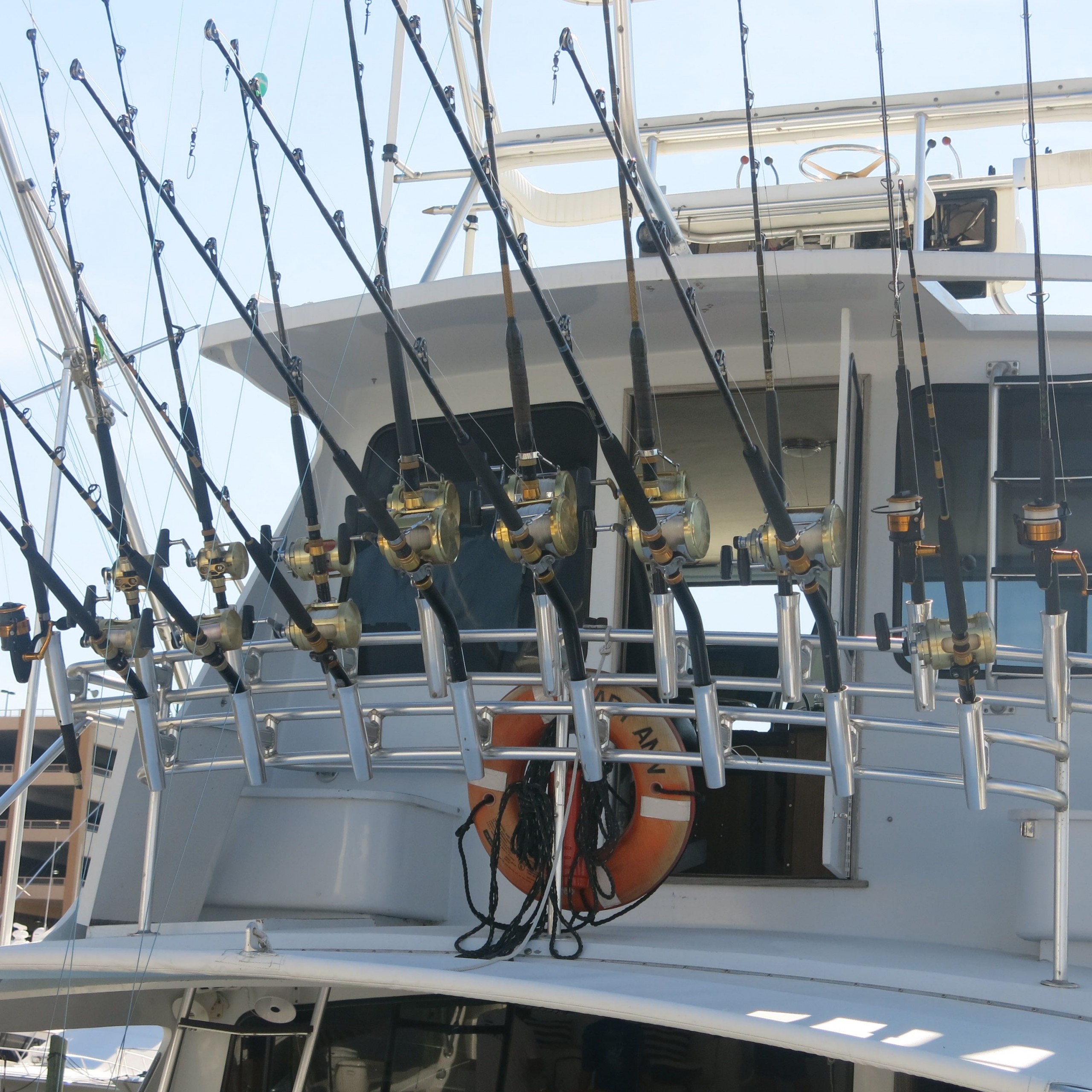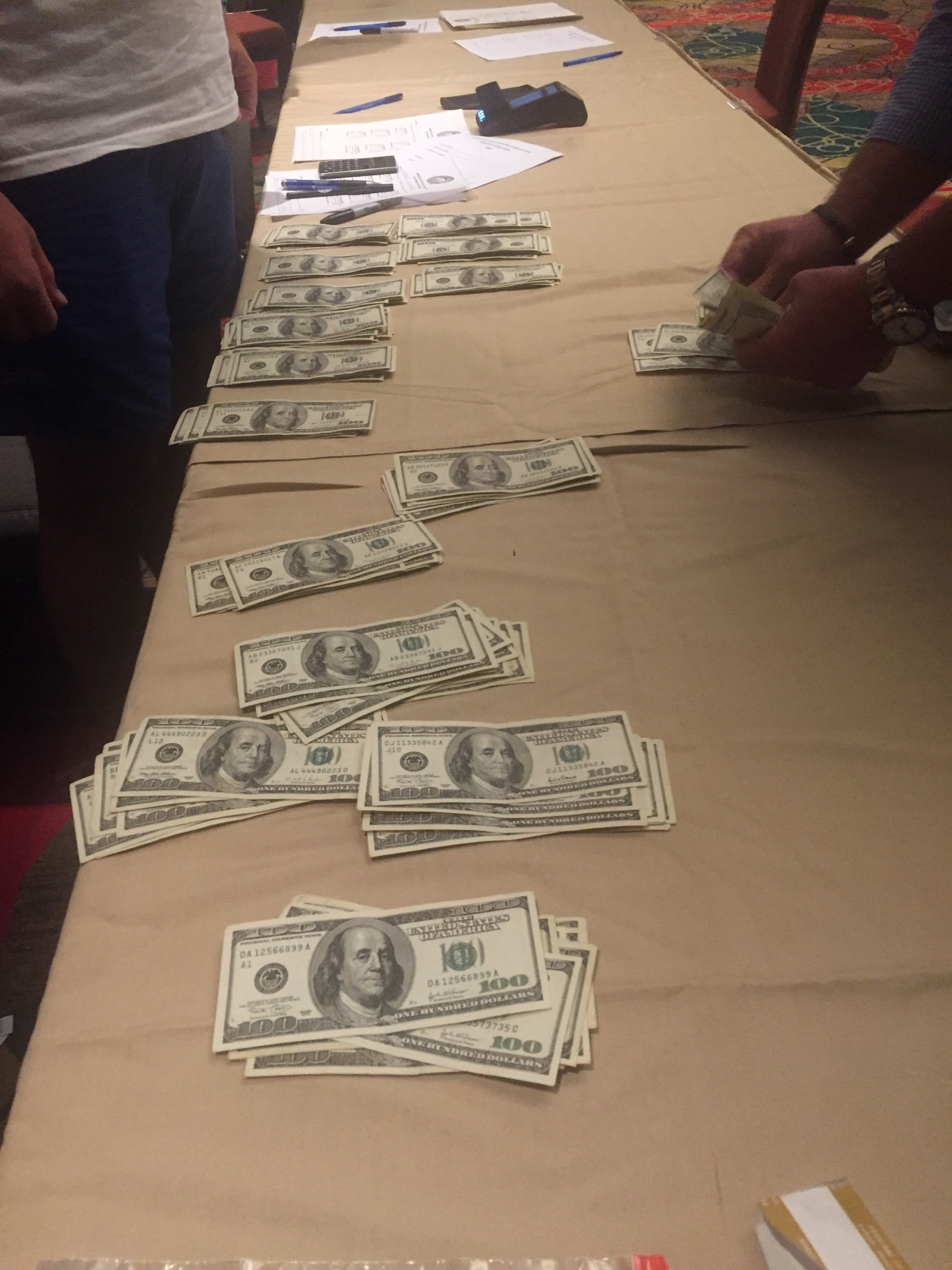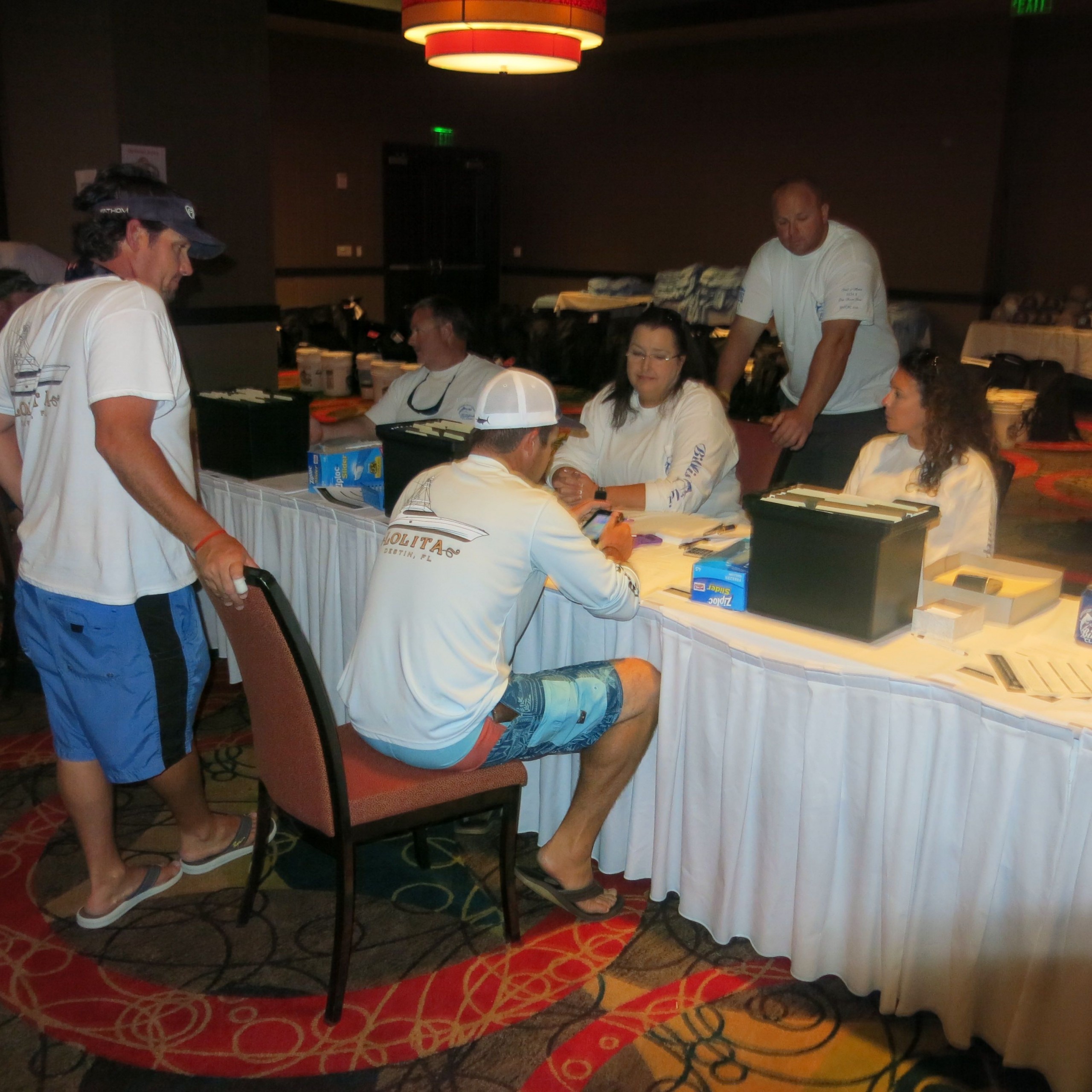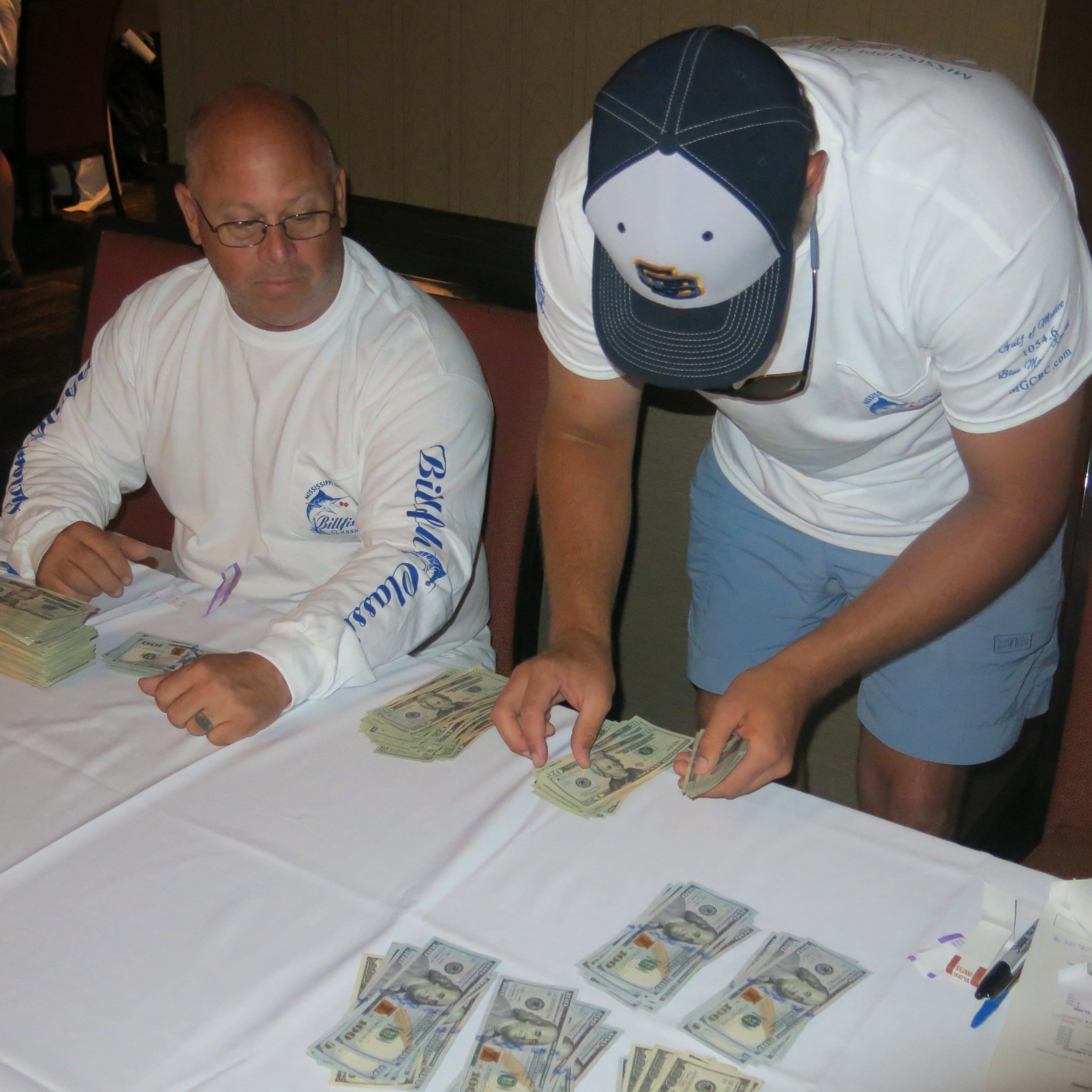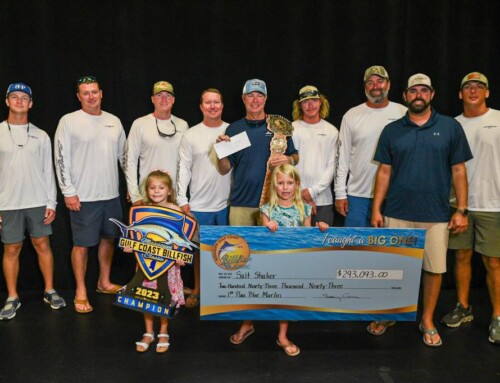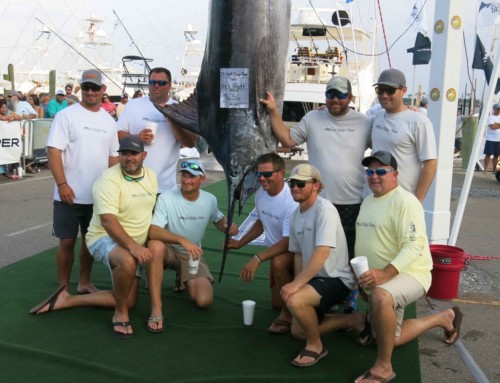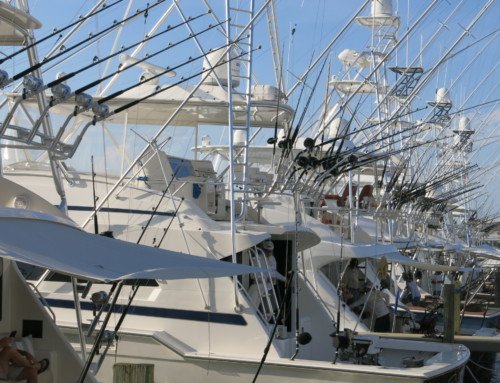June 11; Biloxi, Mississippi:
By Capt. Dave Lear
Fifty-seven teams are hoping to cash in on the dusk feeding frenzy right about now. Marlin often feed in low light conditions as they ambush their prey. The boats competing in the 24th annual Classic were allowed to put lines in at 2 p.m., so all eyes are glued to the baits. And what’s at stake? Bragging rights? Absolutely. But the final outcome could also seriously impact wallets for everyone aboard. That’s because the overall purse is just over $1 million dollars and the team catching the largest blue marlin is poised to take home a serious sack of that coin.
So where does all this cash come from and how is it paid out? Let’s take a look:
The entry fee for each team is $6,000. The bulk of that goes back into tournament awards, while a small percentage is used for expenses. With blue marlin the primary focus, most of the prize money, which is pro-rated based on the number of boats entered, goes into those payouts. The winning fish will earn $57,000 this week. Second-place will receive $28,500 and the third-place finisher will pocket $14,250.
The tournament awards for billfish catch and release, tuna, wahoo and dolphin, also pro-rated by the number of entries, are divided equally although at lesser amounts. The split is $17,100 for first place, $8,550 for second and $5,700 for third in each category. Add it all up and the total tournament award money equals $225,150. That figure alone is not a bad windfall for a couple of fun days on the water.
But the optional entry awards represent the really big bucks. Teams are allowed to increase their earning potential by entering the optional cash divisions. Each one, from blue marlin weight, catch and release, and the three game fish, are broken down in $10,000, $5,000, $2,500, $1,000 and $500 increments. Teams can enter as many as they like. By doing so, it is essentially a bet that they will either win or have a contending entry in each category. So if a team is in completely “across the board” in all entry levels, they have put up $65,500 in bets. Add in the $6,000 required entry fee and the total nut is $71,500.
The real payout comes if a team catches the largest blue marlin of the tournament and has also bet heavily in the optionals. If that’s the case, the winnings would not only be the tournament award, but also the optional money at the entered levels. If doesn’t always work that way, though. There are cases where the biggest marlin takes the tournament award, but if they didn’t bet in the optionals, another boat with a lighter fish could still win more money. A boat could also catch and release more billfish and win more money in the optionals. This creates an interesting dynamic at registration and some serious strategy on the part of the teams.
“There’s more money in marlin than anywhere else,” explains Bert Merritt, the tournament coordinator. “There’s lots of good money in the $1,000 optionals for game fish and tuna overall is hot. But this year, the vast majority of teams have gotten in both the blue marlin weight and release entries. I think that’s because they’re going marlin fishing. With the higher length minimum (110 inches), they know they’re going to catch some smaller fish and release those. But if they find that big one, they’re going to boat it, too. The betting was heavy last night, especially the last hour before we closed registration.”
Teams can pay entry and optional fees by cash, check, credit card and wire transfer. In past years, cash was king. Now credit cards and wire transfers have diminished some of the drama.
“When the guys come in with big wads of cash, it’s a spectacle,” Merritt says. “It’s cool, old school stuff. But today it’s a lot of credit card processing. Plastics aren’t just for fishing anymore. Now they’re used to fish,” he added with a laugh.
“The betting aspect adds to the overall excitement of this sport though, there’s no question about it,” Merritt says.
So all bets have been placed. The game is underway. It’s just a matter of determining who will be the really big winner. In both pounds and bucks.

